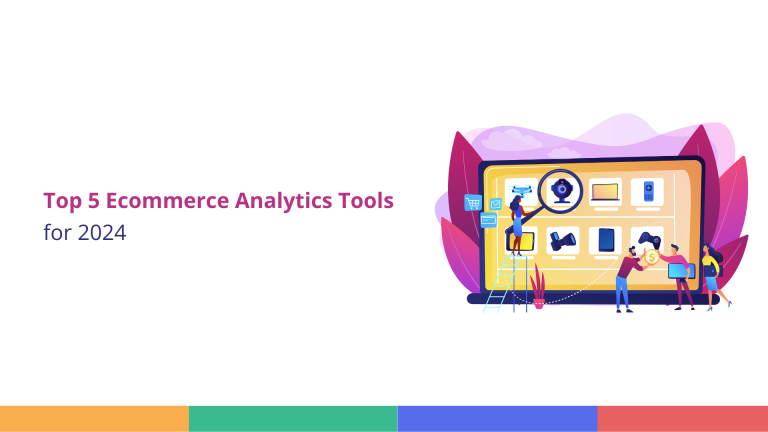Running an online retail business offers significant opportunities, but it also comes with its own set of challenges. From inventory management to customer service, every aspect of the business requires time and attention. Thankfully, ecommerce automation tools can simplify many of these tasks, allowing small business owners and professionals to focus on strategy, customer relationships, and growth.
Here’s a guide to how automation can help optimize your ecommerce operations and the top tools to consider in 2025.
What is Ecommerce Automation?
Ecommerce automation refers to the use of software tools to streamline repetitive tasks, such as managing inventory, processing orders, handling customer inquiries, and running marketing campaigns. These tools are designed to improve efficiency, reduce human error, and free up valuable time.
Key Areas of Ecommerce Automation
1. Inventory Management Automation
Managing inventory is a critical part of running an online store. Automated tools can track stock levels, process orders, and update inventory in real time. When a customer places an order, these tools alert warehouses for packing and shipping while also sending order tracking details to customers.
Advanced systems leverage AI to forecast demand based on sales trends, automating reordering processes and ensuring optimal stock levels. This minimizes stockouts or excess inventory, helping small businesses operate efficiently.
2. Marketing Automation
Automation tools simplify digital marketing by handling email campaigns, social media posts, and SMS marketing. These platforms can target specific customer segments based on behavior, preferences, or purchase history, delivering tailored content that resonates with your audience.
For example, social media automation tools can schedule posts, engage with followers, and analyze campaign performance. This allows small teams to maintain a consistent online presence without overburdening resources.
3. Customer Service Automation
Efficient customer service is crucial for online businesses. Automated customer relationship management (CRM) tools can assist by managing customer data, tracking inquiries, and analyzing feedback. AI-powered chatbots are especially useful, offering instant responses to common questions, recommending products, and guiding users through returns or order tracking.
For more complex issues, these systems can route tickets to the right team member, ensuring customers receive timely and accurate support.
4. Accounting Automation
Automated accounting tools can handle repetitive financial tasks like recording transactions, reconciling accounts, and generating financial statements. They can even assist with tax reporting and bill payments, making bookkeeping less time-consuming for small business owners.
5. Data Analytics Automation
Data is vital for understanding customer behavior and market trends. Analytics automation tools can collect, organize, and interpret this data, offering insights into buyer preferences, sales performance, and marketing campaign effectiveness. These insights enable small businesses to make informed decisions and adapt strategies for better results.
Benefits of Ecommerce Automation
- Streamlined Operations and Efficiency
By automating repetitive tasks like order processing and reporting, small businesses can focus more on strategic initiatives, creativity, and innovation. - Enhanced Customer Experience
Automation improves response times, order accuracy, and overall customer satisfaction. Features like chatbots and real-time order tracking create a seamless experience for buyers. - Optimized Marketing Campaigns
With automation, small businesses can target the right audience with personalized messages, leading to higher engagement and conversion rates. - Increased Revenue and Growth
Efficient processes reduce costs and allow resources to be allocated toward growth-focused initiatives. Automation can also help nurture leads and turn them into loyal customers. - Simplified Integrations
Automation tools often integrate easily with ecommerce platforms, combining inventory, sales, and customer data into a single system for better decision-making.
Top Ecommerce Automation Tools for Small Businesses
- HubSpot Marketing Hub
A comprehensive marketing tool for email campaigns, social media management, customer loyalty programs, and analytics. - Klaviyo
An email marketing platform that excels in customer segmentation, enabling personalized campaigns based on user behavior and preferences. - Optimizely
Specializes in A/B testing and personalization to improve website conversions and user engagement. - Omnisend
Offers omnichannel marketing automation, including email, SMS, and push notifications, to create consistent customer engagement across platforms. - Zendesk
A customer service platform with AI-powered chatbots, ticket routing, and self-service options to streamline communication and support. - Reveal by Omniconvert
An analytics tool that tracks customer behavior, helping small businesses identify target segments and create personalized marketing strategies. - ShipStation
Simplifies order fulfillment by automating shipping processes and providing real-time tracking information. - Zapier
A versatile automation platform that connects different apps, creating custom workflows without the need for coding expertise.
Challenges to Consider
While automation can transform ecommerce operations, it’s essential to manage it effectively. Over-reliance on automation may reduce personalization, and learning to set up and maintain new tools may require an initial investment of time and effort.
Conclusion
Ecommerce automation tools offer small businesses the opportunity to streamline operations, enhance customer satisfaction, and scale efficiently. By automating tasks like inventory management, marketing, customer service, and data analytics, business owners can focus on growth and strategy rather than getting bogged down in repetitive processes.
With the right tools and a thoughtful approach, small businesses can thrive in the competitive ecommerce landscape. Whether you’re just starting out or looking to optimize your operations, automation is the key to staying ahead.
Explore your options and choose the tools that best suit your business needs. The future of ecommerce is automated!


